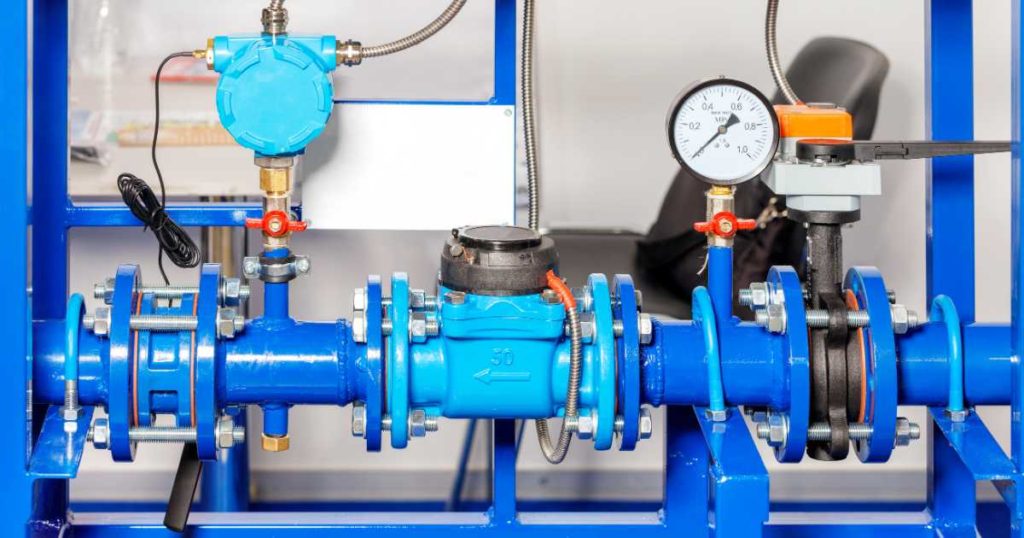Water distribution systems are an integral part of any industry for the process needs and human consumption. Civil design consultants for factories must design the system according to the project requirements. Additionally, their expertise in civil engineering ensures that water distribution systems are efficiently designed, cost-effective, and compliant with regulatory standards. The design of the water distribution systems must ensure efficient and reliable delivery to the point of usage in the facility.
What are the components of the Water Distribution System?
- Source: Typically, the water source is the industrial authority in industrial parks. In private land, however, a borewell can be a water source. The quality of the water available determines the treatment needed. Industries depend on tankers in some areas where water availability is a concern.
- Water Treatment: The treatment entirely depends on the quality of the water source.
- Storage: Civil consultants often design storage tanks (above ground or underground) to create a water reservoir. This storage helps maintain a steady source of water.
- Pumping Station: These pumping stations maintain the water pressure and facilitate water distribution. The pump’s capacity is decided based on the project’s requirements.
- Piping Network: A network of pipes transports water to the entire facility. The design depends on the flow rate, pressure and distance.
- Valves and Control Devices: Civil consultants design the placement of valves and control devices to control the water flow, pressure and direction. A proper design helps in the efficient use of water.
- Monitoring and Control: An essential part of the water distribution systems is monitoring and control. Sensors, meters, and control systems help check for flow, pressure, & water quality parameters. Moreover, the data helps optimize the system’s performance.
Challenges:
- Quality: Maintaining water quality, especially for process requirements, is essential. The civil consultants recommend application-based water treatment such as softening, deionizing, removal of contamination etc.
- Efficiency: A properly designed water distribution system is efficient and reduces energy consumption, water wastage and operational costs.
- Pressure Management: Pressure-reducing valves and sensors help maintain appropriate water pressure throughout the system and help in a consistent performance.
- Corrosion and Scaling: Corrosion and scaling are common in the water distribution system. So, a proper selection of pipe material and water treatment helps avoid these issues.
- Maintenance and Repairs: Regular maintenance helps prevent leaks, corrosion and other issues.
- Environmental Impact: Civil consultants must consider the impact of water usage on the environment. Therefore, the system should be designed for recycling.
Key responsibilities of civil consultants
- System Design and Layout: Civil consultants prepare the layout of water distribution systems to suit the specific needs of industries. Moreover, the strategic placement of pipelines, valves, pumps and storage tanks and other components is also essential.
- Hydraulic Analysis: Hydraulic analysis provides details to consultants to calculate water flow rates, pressures, and other hydraulic parameters. This analysis ensures that the system meets the demands of the industrial processes with consistent water pressure and flow.
- Material Selection: Selection of the appropriate material is essential. Civil consultants consider factors such as water quality, pressure requirements, corrosion resistance, and durability for material selection.
- Regulatory Compliance: The design must meet the local codes and statutory compliances.
- Energy Efficiency: An optimised design for energy efficiency is recommended. Thus reducing operational costs and environmental impact.
- Cost Estimation: Civil consultants also give the cost estimates for the water distribution system.
- Integration with Industrial Processes: Civil consultants collaborate with process consultants to align the process requirements with the water distribution system.
- Reuse and Recycling: It makes the industry sustainable. So, the consultants for civil design ensure that the water reuse and recycling are a part of the distribution system.
Conclusion:
To conclude, civil design consultants for factories design water distribution systems for industries based on the domestic use and process needs. . Their expertise helps the industry get an efficient and consistent supply of water while adhering to compliances.












